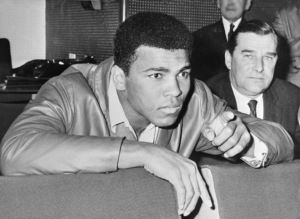News
Danish boxing remembers Muhammad Ali
This article is more than 9 years old.
From Brian Nielsen to Mikkel Kessler, ‘The Greatest’ inspired them all

‘The Greatest’ is gone (photo: Dutch National Archives, The Hague)
The sports world and beyond is mourning the passing of Muhammad Ali, the former heavyweight champion of the world and perhaps most influential athlete in history.
The Danish boxing world was no exception. From Mikkel Kessler to Brian Nielsen, the great Danish boxers all looked up to Ali as a source of inspiration.
“I’m very sad to hear about his passing,” Brian Nielsen, the former Danish heavyweight great, told Ekstra Bladet tabloid.
“He’s one of the greatest ever. You can’t take away from Ali that he was a formidable boxer who will always be remembered. He danced around the ring and was so elegant to watch. And he was also effective and smart in the ring. Definitely one of the all-time greats.”
Former super middleweight champ Mikkel Kessler also chimed in on Facebook.
“The legend. The greatest ever is no longer with us. Rest in peace champ.”
READ MORE: How ‘Bad Blood’ could rejuvenate Danish boxing
A fight he couldn’t win
Kessler’s former promoter, the legendary Mogens Palle, met Ali a number of times. He recalls an encounter that took place before a sparring event that Ali attended in Randers in 1979 as part of his ten-city European farewell tour.
“An old woman in a wheelchair aged around 80 came up to me and asked if it was possible to get an autograph. She had followed him around the world,” Palle told Ekstra Bladet.
“Ali grabbed her face with his boxing gloves and gave her a big kiss on the cheek. She began crying and even I got a little misty-eyed.”
Palle contended that Ali was a huge inspiration to many young boxers and was a major reason why boxing became so popular.
Former world and euro champ Gert Bo Jacobsen echoed those sentiments and remembers in particular Ali’s epic ‘Rumble in the Jungle’ battle against George Foreman in 1974.
“It’s terrible news. He is one of the greatest boxers. One of those you looked up to and tried to emulate in the ring,” said Jacobsen.
“His feet were so fast and had that ability to avoid being hit hard. It was inspiring and something to try oneself. Back then, boxing was the greatest. It was huge and something people wanted to follow.”
Ali passed away on Saturday morning Danish time in Scottsdale, Arizona aged 74 after battling Parkinson’s disease for over 30 years.










































